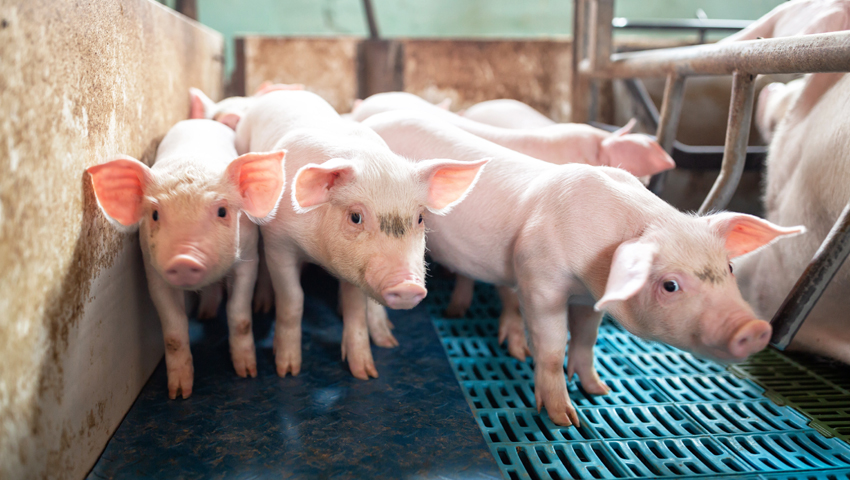THE Landworkers’ Alliance, Sustain, Hodmedod’s and Pasture for Life have joined forces to call for a transition away from imported soy in the UK pig and poultry sectors.
They say that “The over production of soy in the Global South is a key driver of deforestation – and almost 90% of the soy that the UK imports goes to animal feed – mainly for feeding chickens in intensive units and pigs on large-scale holdings. If we want to build a more environmentally just, globally conscious and resilient food system we need to eliminate soy from our animal feed supply chains.”
A new joint report sets out to consider what would the removal of imported soy would look like on practice – what the alternatives may be – the impact on land-use – and how to avoid food-feed competition.
The report says “In recent decades soy has become the primary protein source in livestock feed, and its overproduction has been the subject of scrutiny because of the role it plays in driving deforestation overseas in biodiverse regions such as the Amazon. Soy supply chain certification initiatives alone will never be effective in halting deforestation, and there is an urgent need to reduce our soy demand if we are to take meaningful steps towards climate change mitigation and reversing biodiversity loss.”
Nearly 90% of the UK’s soy imports are used for animal feed – the majority of which is consumed by the indoor pig and poultry sector. The report argues that “transitioning to soy-free alternatives could also support a more resilient and economically viable pig and poultry sector in the UK.”
The report finds that maintaining current levels of pig and poultry production without imported soy would require an increase of 60% increase in the total UK cropland used to produce pig feed and an increase of 78% for poultry feed. It also finds that if we were to replace soy with home-grown legumes without increasing total UK cropland area, then we would need to eat at least 44% less poultry and 41% less pork.
The report also explores what might be possible if current UK cropland area was prioritised for growing pulses for human consumption, and pigs and poultry were fed on by-products and food waste inedible for humans; such as heat treated food waste, insect feed, pasture, and co-products from pulse production. In this scenario it finds that pig and poultry meat consumption would need to reduce dramatically, 82% and 86% respectively.
The report concludes that the UK’s reliance on soy for pig and poultry feed in the UK is unsustainable and contributing to environmental destruction overseas. Furthermore, it says that “given current increases in global demand, supply chain soy certification initiatives are proving unable to limit deforestation, meaning that there is an urgent and obvious need to reduce our demand for soy, and the UK should focus on the animal feed supply industry to address this.”
However, “modelling in the report demonstrates that replacing soy in animal feed with home-grown legumes would have significant implications for land use and diets in the UK.”
In response to the report, National Pig Association chief executive, Lizzie Wilson, told the BBC Farming Today programme. “The pig sector does use a significant proportion of soya, but we have managed to reduce that inclusion by half, and I think we’re at the lowest level now that is feasible.
“We can’t just remove soya completely from the diet because it is still the most efficient source of protein available and is easier to digest for the pig, so it creates much less nitrogen out of the back end.”
Read Soy No More: Breaking away from soy in UK pig and poultry farming
